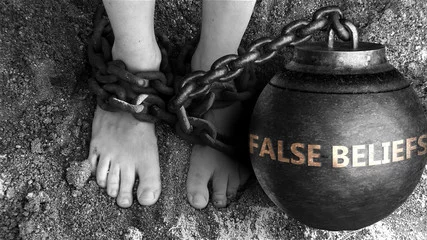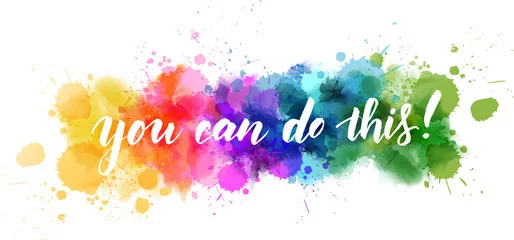Post-Divorce Insight from an Orlando Divorce Attorney
Your divorce has been finalized. Your marriage has been dissolved
Now what?
It is both reasonable and common to be a mess in the aftermath of your divorce.
Some people find they’ve got a new lease on life; others are uncertain about how to find balance.
A “new normal” is a lofty goal for a recently divorced person. Dissolution of marriage is a major upheaval. The first year afterward can be pivotal.
It can also be perilous.
Post-Divorce – What are you feeling?

Some people are challenged, or even traumatized, by the divorce process. The idea of forsaking your vow to stand by that person until death can be painful. Make no mistake – divorce is terribly difficult. It isn’t dramatic to call it a trauma.
Others are incredibly excited, almost giddy, in the months or weeks leading up to their divorce. That can be a little strange to watch, but it’s also completely normal. Divorce is also a kind of liberation.
Related Article – Dating after Divorce
If you choose to allow it to be, the year following your divorce can be a time of empowerment; of change, of growth. A time of learning and healing.
You can count on it being a bumpy ride.
But you can manage this! I promise.
You might be tempted, in the heady days just after your divorce, to leap into your new life and grab it with both hands. You may want to put as much distance as possible between yourself and those memories.
If I could offer you a piece of advice, whether you’re in the first or second group, it would be this:
No sudden moves after divorce.
Let that be a mantra to you as you look to reassemble all the moving parts of your life into something new. Your divorce will almost certainly have come as a major upheaval. Most people, post-divorce, find themselves needing new living arrangements and new financial solutions.
Many are navigating new and complex family dynamics. Many aren’t sure which friends they’ll still get to see.
Some can barely see past breakfast. And that is okay.
In this article, I will try to distill what I have learned in my years as an Orlando divorce attorney into a manageable list. This will consist of things I do recommend and things I don’t recommend.
Why are we talking about the first year after a divorce?
Psychologists have long maintained that one year is a good length of time to give yourself after a traumatic incident, in which to recover and become your new self. Trauma – like marriage – is life changing.
Thus, I’m going to offer you some advice. Some of it is legal advice, some of it I have gleaned from colleagues in other professions, and all of it is meant to encourage you to remember your mantra.
What Not To Do in the First Year After a Divorce

your life – you should feel that you have grieved that loss. [1]
- Buying or selling property, which is a major pen-and-ink decision that should not be made in an emotional state. Huge purchases are hard to take back, so take baby steps toward them.
- Changing careers. Again, as a divorce can make you feel like a completely different person – you shouldn’t rush toward that feeling.
- Major financial transactions.
You need to find your new “normal” before you start making these huge decisions. It may take a bit more, or a bit less, but you must be patient. Get a firm foothold in your new life before you swing a wrecking ball (or a checkbook) at it.
Six months after your divorce, you will feel like a completely different person than you did six hours after your divorce. Whether you’re relieved about your new independence or left feeling raw, your emotions are running very close to the surface.
Don’t trust your emotions. You know how, before a big decision, someone will often recommend that you “sleep on it?”
Multiply that by about 365.
2. Do Not panic about the effect on your children.
Divorce gives some people negative feelings. Maybe they look at children of divorce with pity in their eyes, maybe they murmur “broken home,” or maybe they’re feeling sorry for you.
Most especially when children are involved, friends and relatives (and perfect strangers) will have strong opinions about your new status as a divorced person.
I have clients who’ve worried that their children would be maladjusted if they were divorced. To that, I say:
Children of divorce are no more or less predisposed to emotional troubles than other children. Societal values are not foolproof. We’ve all known or heard about marriages between two people who absolutely loathe each other – but they stay together, because divorce is for quitters, or for some other unwise reason.
They deny themselves happiness, or they drown their resentment in alcohol, or they scream, or they are cold and snipe at each other. Those marriages hurt children more than divorce.
Trust me: a child is much better off with happy, divorced parents than they are with married parents who don’t want to be together. “Stay together for the kids” will harm your children more than the separation, and it will steal years from your life.
So don’t focus on whether or not divorce damages children, because, if you’re taking care of yourself, it likely won’t. [2]
Focus on being the best parent that you can.
3. Do Not fall into the trap of staying “bonded” to your ex-partner.
Many relationships are codependent. These bonds can persist after divorce, and lead to situations in which divorced people try to reconcile. You’re in particular danger of this in the first year after a divorce, when your emotions are unpredictable.
Part of a healthy divorce – and yes, that is a thing – is maintaining independence. You can be friends with your ex, you can co-parent with your ex, and you can maintain a civil relationship with your ex, but you should not see them romantically. It will make it that much more difficult to move on and establish your new life.

What To Do in the First Year After Divorce
No sudden moves.
That means that you should feel free to take your time. You can, if you’re willing, choose to see your post-divorce time as an opportunity. You will have days where it is difficult to get yourself going, and days where it’s hard to believe that old chapter of your life is really over.
You may have days when you cry, or scream, and days when you experience mental dysfunction and don’t want to do anything at all. Here’s a checklist of things you can do to help yourself through it.
1. Practice self-care.
It is common, even easy to get caught up in managing the details of your new life, at the cost of forgetting to take care of yourself. Getting through a divorce – even a friendly, uncontested one – takes immense emotional strength and focus.
Prioritizing yourself, at least sometimes, is going to be one of the most important daily tasks you assign yourself as the first year goes by.
This may be counterintuitive, but it’s nonetheless true:
Taking care of yourself will make you better at taking care of other people in your life. It will equip you to handle the challenges of being newly divorced, and of constructing a new life for yourself in the wake of your marriage’s end.
There are many ways to self-care. Look for the ways that mean something to you. You could consider mindful practices like yoga or meditation, or you could find bliss in a simple weekly ritual like a massage, manicure, or exercise class.
Perhaps even just five dedicated minutes of silence, or a hot bath; there are no guidelines beyond searching for a little bliss.
It will help you navigate a turbulent time in your life.
2. See your friends.
For some reason, many people are ashamed of getting divorced. As an Orlando divorce attorney who has been doing this awhile, let me say frankly that you should not be embarrassed.
For one thing, divorce is quite common.
For another, happy marriages that end in divorce are so rare as to be impossible.
That means that your divorce, as hard as it may have been, is most likely good news. Even if your partner wanted the divorce and you didn’t, it’s good, because remaining with someone who doesn’t want to be with you is toxic.
So if you’re feeling the urge to bury your head in the sand or hide beneath your covers, resist. It will feel easier to do nothing and let life happen around you. It will feel wiser to avoid others who might judge, or pity, or misunderstand your situation.
Grieving alone is alright sometimes, but you should surround yourself with your friends. Good friends who love you, who will be honest with you, and who will allow you the freedom to express yourself are a key part of a strong support system.
3. Try new hobbies.
Hobbies are harmless diversions that can surprise you and become passions. I’ve known many clients whose lives before divorce were filled mostly with television shows or other inanities; clients whom, after their divorce, found themselves unexpectedly taken with a hobby.
It can be whimsical, or daring, or soothing. It can be anything you like.
Take a few classes at a local college. Get into fitness, or pottery, or archery. Try your hand at photography. Get a telescope and study the night sky. Learn calligraphy.
Take up backpacking or French cooking or geocaching. Join a bowling team, book club, birding society, or Ultimate Frisbee league. Play Quidditch. Study falconry. Get a pilot’s license!
You’ve got time you didn’t have before, and energy that was once focused on another person can be focused in a new direction.
Think of it as a chance to get to know a new version of yourself. Hobbies can be healing. [3]
4. Ask for help – including professional help.
I cannot say this in stronger terms:
Counseling is good. Therapy is good. If you weren’t already talking to a professional before your divorce, it’s a great time to start. With the help of a qualified professional, you can craft a plan to see yourself through the post-divorce storm.
Your feelings of loneliness, of betrayal, of resentment; your fears of being aimless or unloved … these are things a counselor or therapist can aid you in overcoming.
Seek support in other ways, as well. What groups do you belong to? Are you a member of a church, temple, or synagogue? They can be an incredible resource.
Support is how you will survive when survival feels nearly impossible. It is how you will thrive again.
Divorce is an end and a beginning
Trust me, I’m a divorce attorney. If you are kind to yourself, you will be okay. You will regain a sense of stability. You will learn more about yourself, about who you are as separate from your former spouse.
Your first year is going to be a challenge, and a rollercoaster. Give yourself time to reflect, to heal, to grieve and to grow.
There will be time enough to shape your future
Citations/References
[1] WebMD, Lisa Fields, Dating After Divorce: When is the Right Time? https://www.webmd.com/sex-relationships/features/dating-after-divorce#1
[2] IFS, Harry Benson, When, and Why, Divorce Hurts Kids. https://ifstudies.org/blog/when-and-why-divorce-hurts-kids
[3] Your Tango, 10 Things To Do After Divorce. https://www.yourtango.com/2017302400/10-things-do-after-divorce-during-the-first-year
 Reviews
Reviews 
